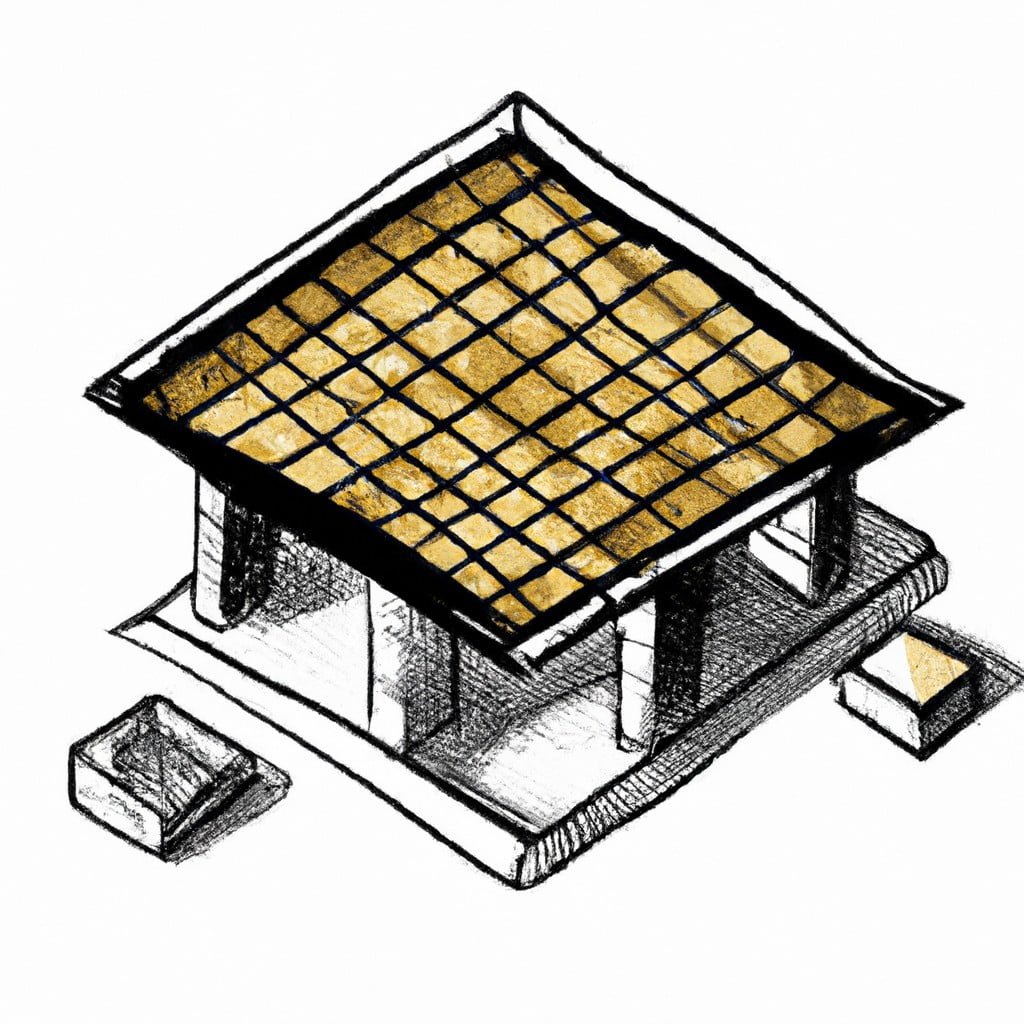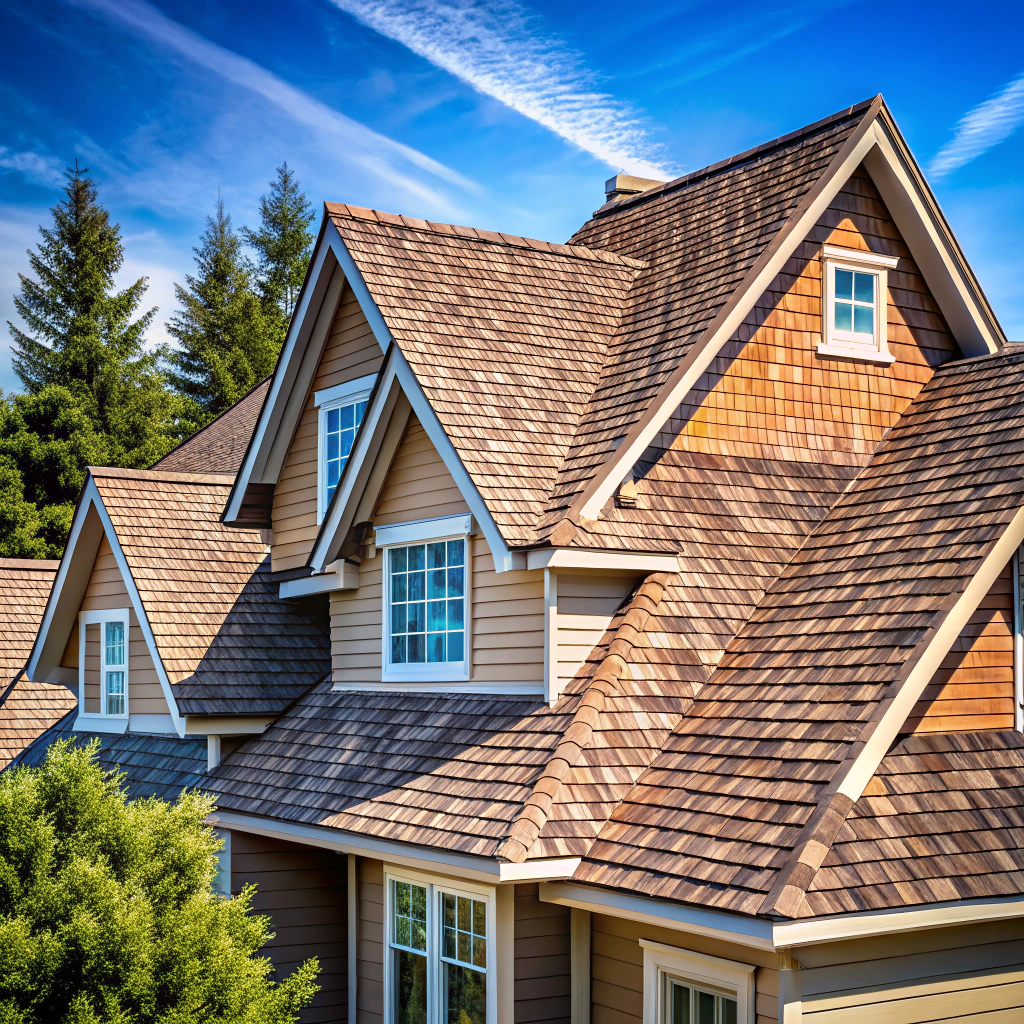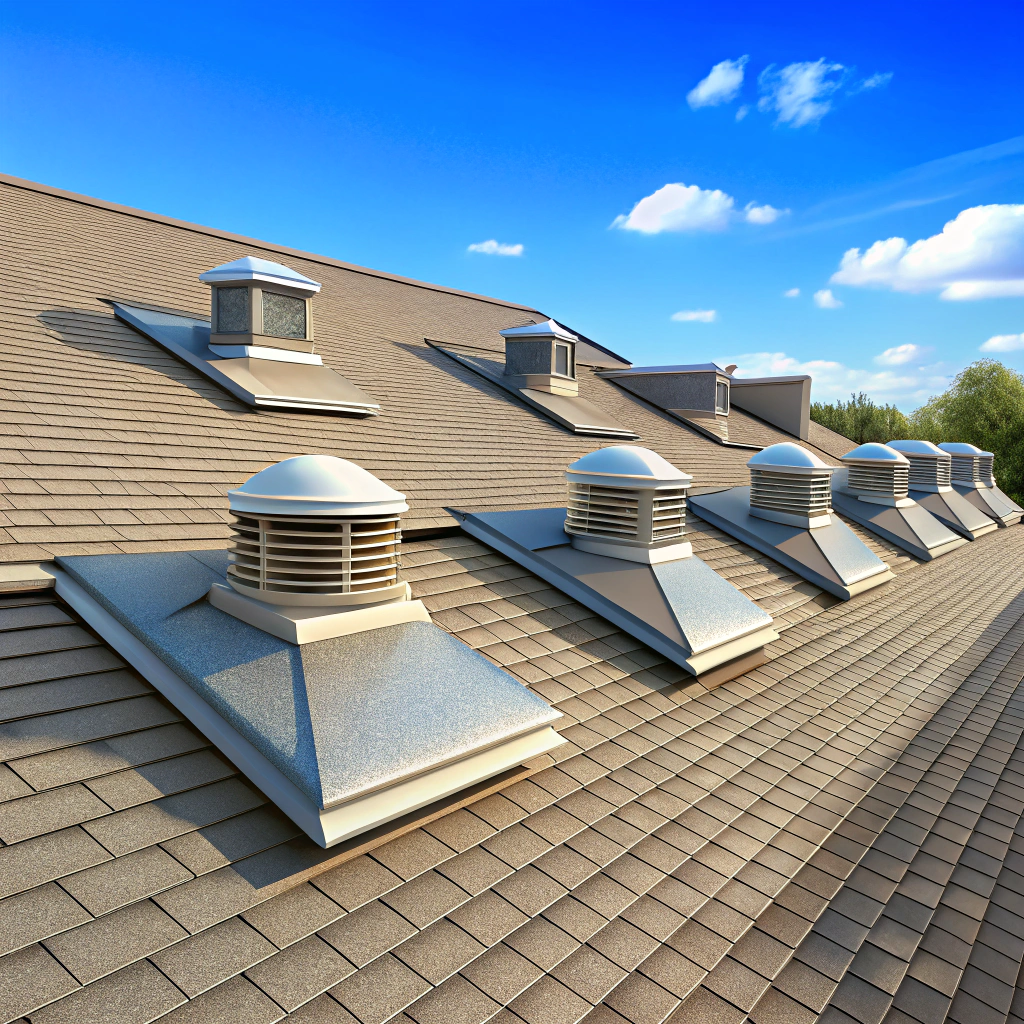Last updated on
Discover the latest costs of installing a new roof in Florida, as we break down essential factors that influence pricing and help you make an informed decision.
Are you a homeowner in Florida wondering how much it would cost to replace your roof? The answer is not as straightforward as you may think. The price of a new roof depends on several factors, such as the type of material, the size and pitch of your roof, and the complexity of the installation process.
As an expert in roofing, I’ve written this article to help you understand what goes into determining the cost of a new roof in Florida and give you an idea of what to expect when it comes to pricing. So sit back, grab a cup of coffee, and let’s dive into this topic together!
Factors Affecting Roof Prices in Florida

One of the most significant factors that affect roofing prices is the type of material used. Other crucial elements include labor costs, roof pitch, and shape, as well as any additional work required during installation or replacement.
Labor costs are another critical factor to consider when determining how much you’ll pay for a new roof in Florida. The complexity and size of your project will determine how many workers are needed to complete it efficiently.
If your home has multiple levels or steep slopes that require extra safety precautions for workers on-site, this can also increase labor expenses.
Roof pitch refers to the angle at which your roof slopes upward from its lowest point to its highest point. A steeper slope requires more materials and time than a flatter one because it’s harder for workers to move around safely while installing shingles or other roofing components.
Additional work such as asbestos removal can add significantly more expense onto an already costly project; however necessary it may be due to health concerns associated with exposure over time without proper protection measures taken beforehand.
Florida Roofing Costs By Material Type
Each material has its unique features and price points. Asphalt shingles are the most popular choice for homeowners due to their affordability and durability.
They cost between $3-$5 per square foot installed.
Metal roofs have become increasingly popular in recent years due to their longevity, energy efficiency, and low maintenance costs. The average cost of a metal roof installation ranges from $7-$12 per square foot.
Tile roofing is another option that many Floridians prefer because of its aesthetic appeal and ability to withstand harsh weather conditions such as hurricanes or tropical storms. Tile roofs can range from $10-$20 per square foot installed.
Flat roofs are common on commercial buildings but can also be found on some residential properties in Florida’s urban areas like Miami or Tampa Bay Area where space is limited; they typically cost around $4-8 per sq ft depending on the type of material used for covering them (e.g., TPO vs EPDM).
Asphalt Shingles Prices
They are affordable, durable, and come in various colors and styles to match any home’s aesthetic. The cost of asphalt shingles varies depending on several factors such as quality, thickness, brand name or manufacturer warranty.
On average you can expect to pay between $3-$5 per square foot for basic 3-tab asphalt shingle installation. However higher-end architectural or dimensional shingles may cost up to $8 per square foot installed.
It is important not only to consider the upfront costs but also the long-term value when choosing your roofing materials. Asphalt roofs have an average lifespan of 15-30 years depending on maintenance practices and weather conditions which makes them a great option if you’re looking for affordability without sacrificing durability.
Metal Roofing Costs
Metal roofs can last up to 50 years or more, making them an excellent investment for your home. However, metal roofing costs are typically higher than other materials such as asphalt shingles or tile.
The cost of a metal roof depends on several factors such as the type of metal used, the size and pitch of your roof, and the complexity of installation. The most common types of metals used in roofing include steel, aluminum, copper and zinc.
Steel is one of the most affordable options with prices ranging from $5-$12 per square foot installed while aluminum costs between $7-$15 per square foot installed. Copper is considered a premium material with prices starting at around $15 per square foot installed but can go up to over $30 depending on various factors like thickness etc.
Tile Roofing Prices
However, it’s also one of the most expensive roofing materials on the market. The cost of tile roofing can vary depending on several factors such as the type of tile, installation complexity, and roof size.
Concrete tiles are more affordable than clay tiles but still offer excellent durability and longevity. They come in various colors and styles that mimic natural stone or wood shakes.
On average, concrete tile roofs cost between $8 to $12 per square foot installed. This price includes labor costs for installation by a professional contractor.
Clay tiles are more expensive than concrete but have an even longer lifespan with proper maintenance. They’re also available in different shapes like barrel or flat profiles that add character to your home’s exterior design.
The average cost for clay tile roofs ranges from $10 to $18 per square foot installed depending on style complexity and location accessibility during installation.
Flat Roof Costs
They offer several benefits, such as easy maintenance, energy efficiency, and more usable space. However, flat roofs require specialized installation techniques that can affect the cost of your new roof.
The cost of installing a flat roof in Florida ranges from $3 to $7 per square foot on average. The price varies depending on the type of material used and the complexity of the installation process.
For example, TPO (Thermoplastic Olefin) is one common material used for flat roofing because it’s durable and energy-efficient. The average cost to install TPO roofing is around $5 per square foot.
On the other hand, EPDM (Ethylene Propylene Diene Monomer) rubber roofing is another popular option due to its affordability and ease-of-installation; it costs around $4 per square foot installed.
Roof Installation Costs
The cost of installing a new roof depends on the size and complexity of your roofing system, as well as the type of material you choose. For instance, metal roofs may require additional labor and equipment compared to asphalt shingles or tile roofs.
The average cost for installing an asphalt shingle roof in Florida ranges from $3 to $5 per square foot. This means that if you have a 2,000 square foot home with an average pitch (slope), it will cost between $6,000 and $10,000 for installation alone.
On the other hand, metal roofing can range from around $7-$12 per square foot installed depending on factors such as panel style/manufacturer chosen by homeowner etc., which is more expensive than traditional asphalt shingles but offers greater durability over time.
It’s important to note that these prices do not include any necessary repairs or modifications needed before installation begins.
Roof Replacement Cost Factors in Florida
The size and pitch of your roof, as well as the complexity of the installation process, will all play a role in determining how much you’ll pay for a new roof. If you need any repairs or upgrades to your existing roofing system before installing a new one – such as removing asbestos or repairing structural damage – these costs will also add up.
Another factor that can affect the cost of replacing your roof is labor. Labor costs vary depending on where you live in Florida and what type of contractor you hire for the job.
It’s important to choose an experienced roofing contractor who has knowledge about local building codes and regulations.
Lastly, inspections are another crucial aspect when considering replacement costs; they help identify potential issues with existing roofs before they become major problems down-the-line which could lead to more expensive repairs later on.
Roof Pitch
The pitch refers to how steep or flat your roof is, and it plays a significant role in determining which roofing materials are suitable for your home. A steeper pitch requires more labor and material, making it more expensive than a flatter roof.
In general, roofs with pitches between 4/12 (18 degrees) and 9/12 (37 degrees) are considered standard pitches. These roofs require less labor and material than steeper ones but still provide adequate drainage for rainwater.
However, if you have an unusually steep or flat roof that falls outside this range, you may need specialized materials or additional structural support to ensure proper installation. This can significantly increase the cost of your new roof.
It’s essential to work with an experienced roofing contractor who can assess your specific needs based on factors such as climate conditions in Florida before recommending appropriate solutions for your home’s unique requirements.
Roof Shape
The shape of your roof determines how much material will be needed and how complex the installation process will be. A simple gable or hip roof with a moderate pitch is easier to install than a more complicated design, such as an A-frame or mansard style.
The shape of your roof also affects its durability and resistance to wind damage during hurricanes. For example, flat roofs are more prone to leaks and water damage than sloped roofs because they do not allow for proper drainage.
When considering the shape of your new roof, it’s essential to consult with an experienced roofing contractor who can advise you on which design would work best for your home’s architecture while keeping costs within budget constraints.
Understanding how different factors influence roofing costs in Florida is crucial when planning for a new installation or replacement project.
Labor
The amount you pay for labor depends on several variables, such as the size and complexity of your roofing project, location, and experience level of your contractor. In general, labor costs account for about 40% to 60% percent of total roofing expenses.
When it comes to hiring a roofing contractor in Florida, it’s essential to choose someone who has extensive experience working with different types of roofs and materials. A reputable roofer will provide you with an accurate estimate that includes all aspects related to labor costs.
It’s also crucial to ensure that your chosen contractor has proper licensing and insurance coverage before starting any work on your property. This way, you can protect yourself from potential liability issues if something goes wrong during the installation process.
Labor is a critical factor when determining how much it will cost for a new roof in Florida.
Inspection
Before any work can begin, it’s essential to have your current roof inspected by a professional roofing contractor. During the inspection, they will assess the condition of your existing roof and identify any underlying issues that may need to be addressed before installing a new one.
The inspection process typically involves checking for leaks, water damage, missing or damaged shingles or tiles, and signs of wear and tear. The inspector will also examine your attic space for proper ventilation and insulation.
Once the inspection is complete, you’ll receive an estimate outlining what needs to be done to install your new roof properly. Keep in mind that some contractors may offer free inspections as part of their services while others charge fees depending on how extensive it is.
Asbestos Removal
If your home was built before this time, there’s a chance that asbestos may be present in your roof. Asbestos fibers can cause serious health problems when they are released into the air and breathed in over time.
If you suspect that your roof contains asbestos, it’s essential to have it removed by professionals who are trained and certified to handle this dangerous substance safely. The cost of removing asbestos from a roof can vary depending on several factors such as the size of the area affected, accessibility, and disposal fees.
It’s important not to attempt any DIY removal or repairs if you suspect there is asbestos present as disturbing these materials could release harmful fibers into the air which could lead to severe respiratory issues for anyone exposed.
While having an older home with an original roof might seem charming; however old roofs often come with hidden dangers like potential exposure to toxic substances like Asbestos.
Signs You Need a New Roof
Ignoring these signs can lead to more significant problems down the road, such as water damage and mold growth. Here are some common indicators that it’s time for a new roof:
1. Age: If your current roofing system has been in place for over 20 years, it may be time to consider replacing it.
2. Missing or Damaged Shingles: Check if there are any missing shingles or ones with cracks, curling edges, or blistering granules.
3. Water Damage: Look out for water stains on ceilings and walls inside your home; this could indicate leaks from the roof.
4. Sagging Roof Deck: A sagging deck indicates structural damage caused by moisture buildup over time.
5. High Energy Bills – An old and damaged roofing system can cause air leaks leading to high energy bills.
How Long Will a Roof Last in Florida?
Asphalt shingles are one of the most popular roofing materials in Florida and can last up to 20 years with proper care. Metal roofs have a longer lifespan than asphalt shingles and can last up to 50 years or more.
Tile roofs are also common in Florida due to their durability against harsh weather conditions but require regular maintenance for longevity. Flat roofs typically have shorter lifespans compared to sloped roofs because they tend to accumulate water which leads to faster wear and tear.
It’s important for homeowners in Florida not only consider how much it costs for a new roof but also factor in how long that investment will last them before needing repairs or replacement. Regular inspections by professional roofing contractors can help identify potential issues early on so that necessary repairs can be made before they become major problems leading towards premature failure of your roof system.
Hurricane Preparedness and Roofs
Your roof is one of the most vulnerable parts of your house during a hurricane, so taking steps to protect it can save you thousands in repair costs. One way to do this is by installing hurricane straps or clips that secure your roof trusses or rafters to the walls more firmly.
This will help prevent uplift and keep your roof from being blown off during high winds.
Another crucial step in preparing for hurricanes is trimming trees around your property that could fall on or damage your roof if they were uprooted by strong winds. Inspecting and repairing any loose shingles or tiles before a storm hits can also reduce potential damage.
Choosing the Right Roofing Contractor
A reputable roofing company will not only provide quality workmanship but also ensure that your project is completed on time and within budget.
To find a reliable roofing contractor in Florida, start by asking for referrals from friends or family members who have recently had their roofs replaced. You can also check online reviews and ratings of local contractors to get an idea of their reputation.
Once you’ve narrowed down your list of potential contractors, schedule consultations with each one to discuss your project’s specifics. During these meetings, ask about their experience with similar projects and request references from past clients.
It’s essential to choose a licensed and insured roofing contractor in Florida since this ensures that they meet state requirements for safety standards and liability coverage. Make sure that they offer warranties on both materials used during installation as well as labor performed by them.
Roof Financing Options in Florida
There are several financing options available to Florida homeowners that can help make your roofing project more affordable. Many roofing contractors offer financing plans with low-interest rates and flexible payment terms, allowing you to spread out the cost of your new roof over time.
Another option is to apply for a home equity loan or line of credit from your bank or credit union. These loans use the equity in your home as collateral and typically have lower interest rates than other types of loans.
Before choosing a financing option, it’s essential to do some research and compare different lenders’ offers carefully. Look for reputable companies with transparent terms and conditions that fit within your budget.
FAQ
Is $30,000 too much for a roof?
Yes, $30,000 is too much for a roof, considering the average roof replacement cost is $7,523 and costs typically range from $5,000 to $10,000, although prices may vary by location.
What is the new roof law in Florida?
The new roof law in Florida, SB 4-D, effective May 26, 2022, eliminates the 25% Roof Replacement Rule and only requires a full roof replacement if the rest of the roof is not in compliance with the 2007 Florida Building Code or its subsequent versions.
How long does a 25 year roof last in Florida?
A 25-year roof in Florida, when maintained properly, can last anywhere from 25 to 50 years.
What is the 25 roof replacement rule in Florida?
The 25 roof replacement rule in Florida states that no more than 25% of the total roof area or roof section of an existing building can be repaired, replaced, or recovered in a 12-month period unless the entire roofing system adheres to the Florida Building Code requirements.
What factors affect the cost of a new roof installation in Florida?
"Factors affecting the cost of a new roof installation in Florida include material type, labor costs, roof size and complexity, property location, and local regulations."
How does Florida’s climate influence the choice of roofing materials?
Florida’s climate, characterized by high levels of heat, humidity, and frequent storms, influences the choice of roofing materials, as residents opt for materials that can withstand these conditions and provide durability, energy efficiency, and resistance to wind and water damage.
Are there any Florida-specific regulations or guidelines to consider when choosing a roofing contractor?
In Florida, it is essential to choose a roofing contractor who is licensed and adheres to the state-specific regulations and guidelines.




